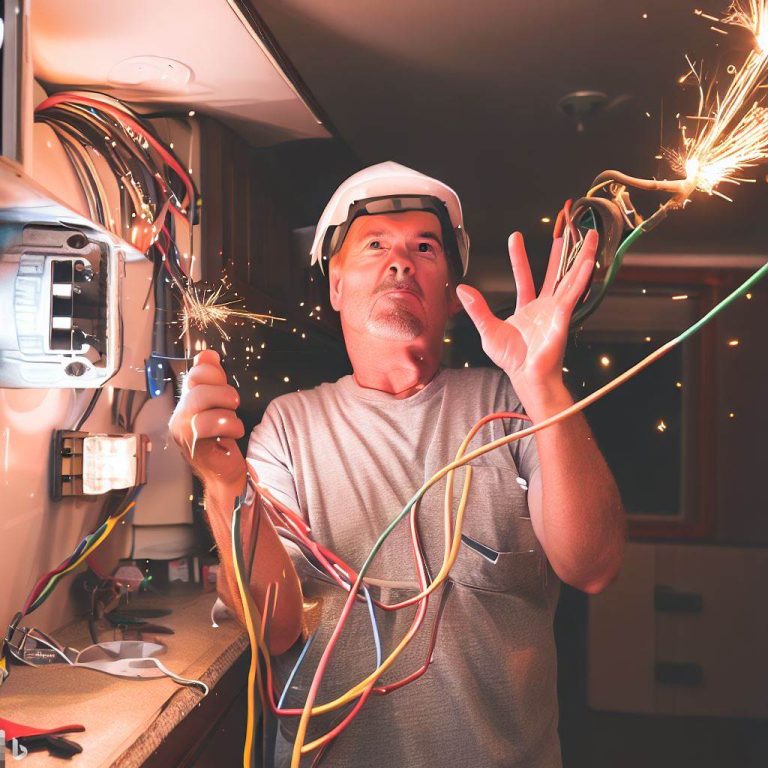
Electrical Woes? Unraveling RV Wiring and Electrical System Repairs
For avid RV enthusiasts, hitting the open road offers unparalleled freedom and adventure. However, with the convenience of modern RVs comes the challenge of maintaining their intricate electrical systems. From wiring issues to malfunctioning appliances, electrical problems can turn your dream road trip into a nightmare. In this comprehensive guide, we’ll unravel the mysteries of RV wiring and provide insights into tackling common electrical system problems and repairs.
Understanding Your RV’s Electrical System
Before delving into troubleshooting and repairs, it’s essential to grasp the basics of your RV’s electrical system.
- 12-Volt DC System: This system operates the essentials in your RV, including lights, water pump, fans, and your propane fridge. It’s powered by your RV’s batteries, typically one or more deep-cycle batteries.
- 120-Volt AC System: The 120-volt AC system powers larger appliances like your air conditioner, microwave, and electrical outlets when connected to shore power (campground or home electricity) or a generator.
- Converter/Inverter: The converter transforms 120-volt AC power into 12-volt DC power when you’re plugged into shore power. The inverter, on the other hand, does the reverse, converting 12-volt DC power into 120-volt AC power when you’re off-grid.
Common RV Electrical Problems and Solutions
- Dead Batteries: If your RV’s 12-volt system isn’t working, it could be due to dead batteries. Start by checking the battery voltage using a multimeter. If it’s below 12.6 volts, recharge or replace your batteries as needed.
- Tripped Circuit Breakers or Blown Fuses: In case some 120-volt appliances or outlets aren’t working, check your circuit breakers and fuses. Reset any tripped breakers and replace blown fuses.
- Inadequate Shore Power: If you’re not getting sufficient power from your shore connection, ensure it’s properly plugged in and that your RV’s circuit breakers are engaged.
- Appliance Malfunctions: If specific appliances aren’t working, like your microwave or air conditioner, test them individually. If they don’t work at all, consult their respective user manuals for troubleshooting steps.
- Faulty Outlets and Wiring: If some 120-volt outlets don’t function, check for loose connections or damaged wiring. Consult an electrician or RV technician for professional help if needed.
RV Electrical Repairs: Where to Start
While some electrical issues may require professional assistance, there are several DIY steps you can take to address common problems.
Step 1: Safety First
Safety is paramount when dealing with electrical repairs. Disconnect all power sources, including shore power and batteries, before working on any electrical components.
Step 2: Visual Inspection
Start with a visual inspection of your RV’s electrical system. Look for frayed wires, loose connections, or signs of overheating around outlets, switches, and appliances. Address any visible issues promptly.
Step 3: Use a Multimeter
Invest in a digital multimeter to test electrical components. You can check battery voltage, continuity in wires, and power at outlets using this versatile tool.
Step 4: Test Individual Appliances
If a specific appliance isn’t working, unplug it and test it on a separate power source (if possible). This will help determine if the problem is with the appliance itself or the RV’s electrical system.
Step 5: Check Circuit Breakers and Fuses
Inspect your RV’s circuit breaker panel and fuse box. Reset tripped breakers and replace blown fuses. Be sure to use the correct amperage-rated fuses.
Step 6: Verify Ground Fault Circuit Interrupters (GFCIs)
GFCIs are essential safety devices in your RV’s electrical system. Test and reset GFCIs, as they can sometimes trip without obvious cause.
Step 7: Inspect Battery Connections
Ensure your battery terminals are clean, tight, and free of corrosion. Loose or corroded connections can lead to electrical problems.
Step 8: Seek Professional Help When Necessary
If you can’t identify or resolve the issue, don’t hesitate to consult an RV technician or electrician. Electrical problems can be complex, and professional expertise is invaluable when safety is a concern.
While RV electrical issues can be frustrating, they are not insurmountable. With a basic understanding of your RV’s electrical systems and some DIY troubleshooting skills, you can often identify and fix common problems. However, safety should always be your top priority, and if in doubt, seek professional assistance. By taking care of your RV’s electrical system, you ensure a smoother and more enjoyable journey on the open road. Happy RVing!